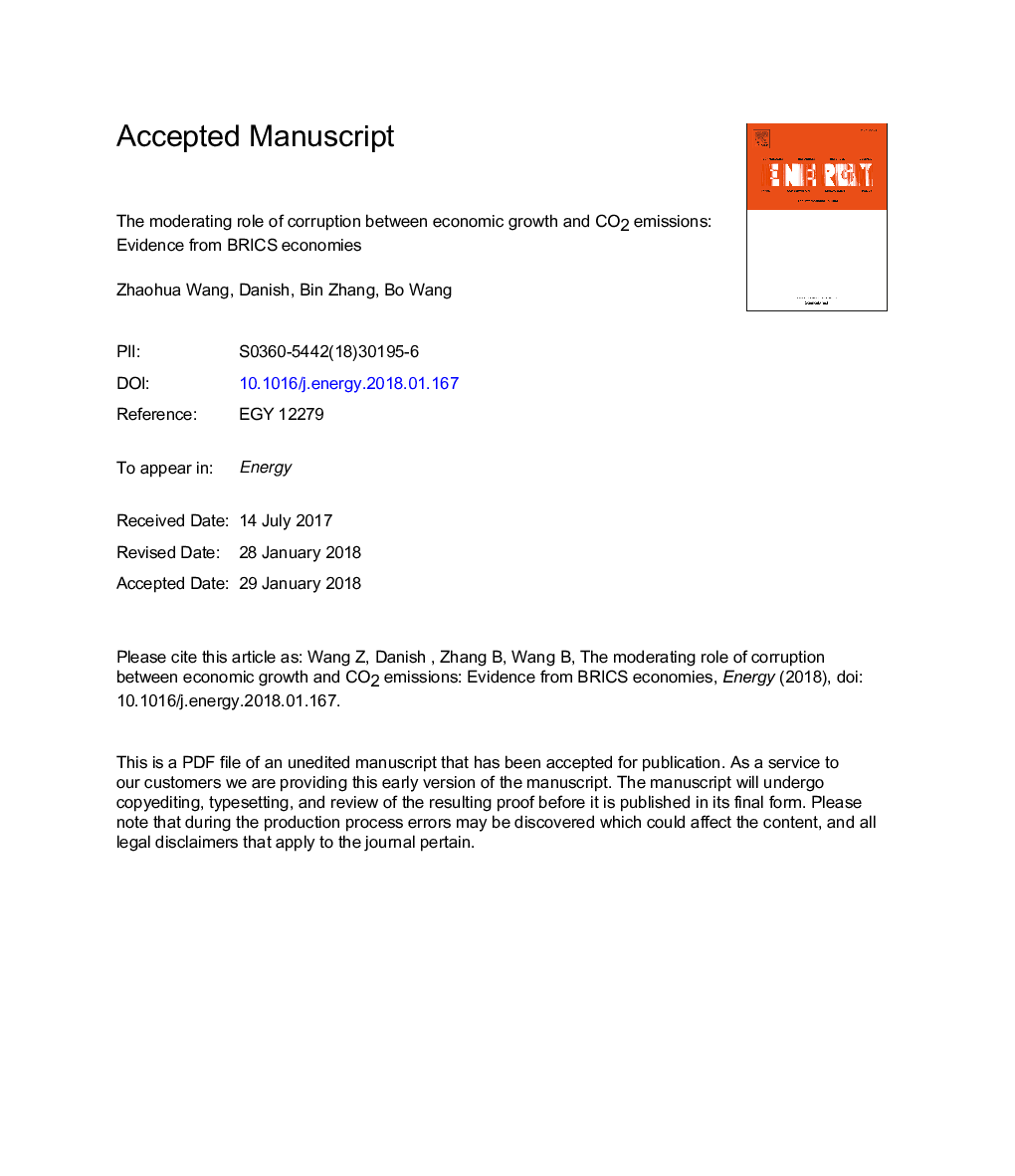| Article ID | Journal | Published Year | Pages | File Type |
|---|---|---|---|---|
| 8072021 | Energy | 2018 | 30 Pages |
Abstract
The policy debate on economic growth and CO2 emissions is topical: corruption may affect this relationship by raising pollution at given income levels and by reducing per capita income. This research proposed a newly formulated conceptual framework to explore the moderating role of corruption on the relationship between growth and CO2 emissions by applying a partial least square regression model for a panel of BRICS countries from 1996 to 2015. Overall, from our empirical findings, we infer that the moderating role of corruption is crucial in the relationship between economic growth and carbon dioxide emissions and control of corruption reduce CO2 emissions. Furthermore, a significant moderating effect of corruption is observed on the relationship between urbanisation and carbon dioxide emissions in the case of BRICS countries, which signifies poor environmental performance therein. Also, control of corruption has a moderating effect on the relationship between trade and CO2 emissions. The variance importance analysis confirms the reliability of our results. The novel finding of the study not only advances the prior literature also provides a more clearer picture of the growth-emission nexus. The new findings can be of special interest to policymakers as they seek to control pollution at national level.
Related Topics
Physical Sciences and Engineering
Energy
Energy (General)
Authors
Zhaohua Wang, Danish Danish, Bin Zhang, Bo Wang,
